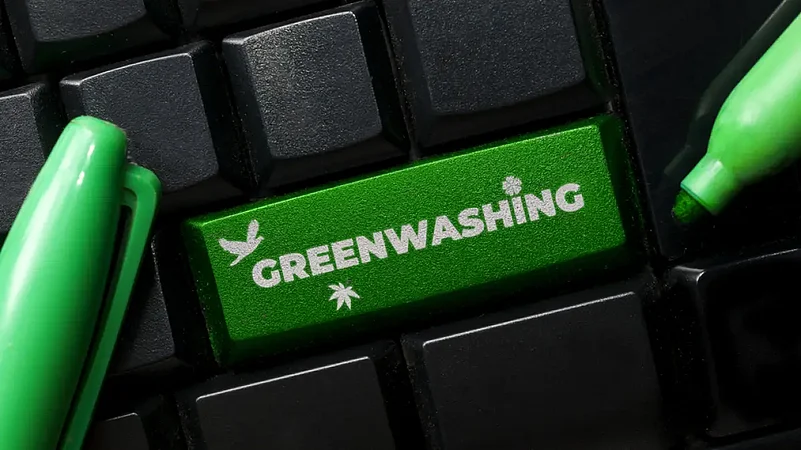Greenwashing or for that matter ESG washing is becoming as much a concern today as global warming – domestically and globally.
Recently, markets regulator Securities and Exchange Board of India (SEBI) set up an advisory committee on Environmental, Social, and Governance (ESG) matters. Its terms of reference include “continuous enhancement of disclosures specific to ESG Schemes of mutual funds with particular focus on mitigation of risks of mis-selling and greenwashing.” India has no specific laws to rein in greenwashing. The Advertising Standards Council of India (ASCI) requires advertisements to be “legal, decent, honest and truthful”, but then it is just a Code for Self-Regulation.
Earlier the UN Secretary-General António Guterres set up a High-Level Expert Group (HLEG) on the Net-Zero Emissions Commitments of Non-State Entities to help ensure credibility and accountability of net-zero pledges. Guterres in his message to the HLEG said, "We cannot afford slow movers, fake movers, or any form of greenwashing.” The HLEG was set up in the backdrop of net-zero commitments by non-state actors, particularly from the private and financial sectors, in the absence of standard criteria for measurement, assessment, and accountability.
“This perception risk… enables greenwashing, announcements that lack concrete decarbonization plans, undue reliance on the use of offsets, and potential unrealistic dependence on removals (in lieu of concrete mitigation action) to reduce absolute emissions,” note the terms of reference.
In France, NGOs like Greenpeace France, Friends of the Earth France, Notre Affaire à Tous, and ClientEarth have taken to court oil major TotalEnergies, calling it out for greenwashing for its net-zero claims. TotalEnergies is countering the allegations. In fact, France is also bringing in a decree from January 1, 2023, to prohibit "carbon neutral" claims that cannot be proved.
Clearly, greenwashing has come a long way. When US-based Jay Westerveld as an undergraduate student coined the term greenwashing in 1986, the future environmentalist could have little imagined that the term would make to dictionaries and stick globally. He was prompted by a hotel in Fiji promoting the reuse of towels to save the environment in the garb of saving laundry costs and nothing else.
The Cambridge Dictionary defines greenwashing as making “people believe that your company is doing more to protect the environment than it really is.” According to the Oxford Dictionary, greenwashing is “activities by a company or an organization that are intended to make people think that it is concerned about the environment, even if its real business actually harms the environment.”
In a fast-changing world, greenwashing itself has given reverse birth to the mother term color washing, which in simpler terms is selectively hiding the negatives and promoting the positives to appear environmentally and social correct and reap dividends.
For example, pinkwashing refers to championing female empowerment while indulging in unequal practices toward women. Brownwashing is about seen to be promoting people of color, but following racist policies and practices. Rainbowashing refers to appearing as supporting LGTBQIA+ rights, but not in reality. Whitewashing, as most of us are familiar with, is about covering up for wrongdoing. The latest term to dominate politically correct discourses is ESG-washing.
Newsmaker
A crusader against greenwashing, Assaad Razzouk is a social media influencer and amongst the top 10 Twitter advocates of clean energy globally. His tweet on India crossing 100GW renewable energy capacity was one of the most popular tweets of the last year. His much-awaited book ‘Saving the Planet Without the Bullshit: What They Don’t Tell You About the Climate Crisis’ from Atlantic Books is touted to be a profound commentary with its counterintuitive arguments and set to influence how we view the climate crisis. His mantra seems to rein in big oil to fight global warming rather than go vegan, invest in ethical plans or offset air travel.
Razzouk is against using natural gas instead of fossil methane or fossil gas; promoting the use of carbon footprint calculators because it shifts the onus from big oil to the consumer; corporate net-zero pledges, which lack actual plans. He has called all these instances acts of greenwashing in an interview with ‘CleanTechnica’, a cleantech news site. He would know what he is talking about. The Lebanese-British clean energy entrepreneur, podcaster, and commentator based in Singapore is CEO at Gurīn Energy and host of ‘The Angry Clean Energy Guy’ podcast. An alumnus of Columbia University and Syracuse University, he was also awarded a Ph.D., Honoris Causa, by TERI School of Advanced Studies.
Postscript
Predictably, greenwashing is also lending itself as the grist for humor. Some net-zero greenwashing examples are best captured through the analogy of Sydney-based Greg Taylor, 73, who has pledged to quit drinking by 2050 to keep pace with the global net-zero targets, as reported by ‘The Shovel’, an Australian satire news site. He is targeting to phase out his drinking within 29 years in the interest of his health. When he reaches 101 in 2049, he plans to cut down on his drinking. Till then he will continue drinking as usual because an immediate switch to zero alcohol is not practical. He will save credits from the days he misses out on drinking due to illness for using these to stretch his deadline. In the meantime, he has invested in another fridge for capture and storage purpose. So much for following the net-zero announcement precedences in letter – and spirit!































